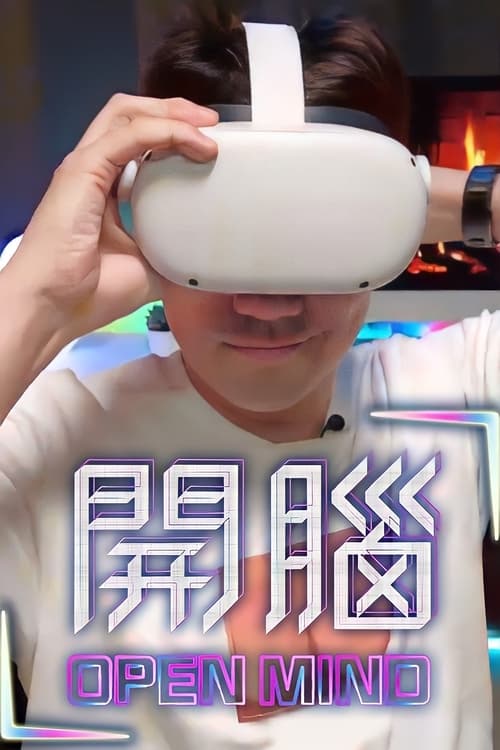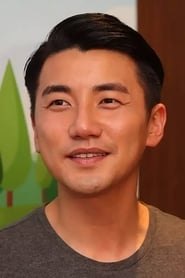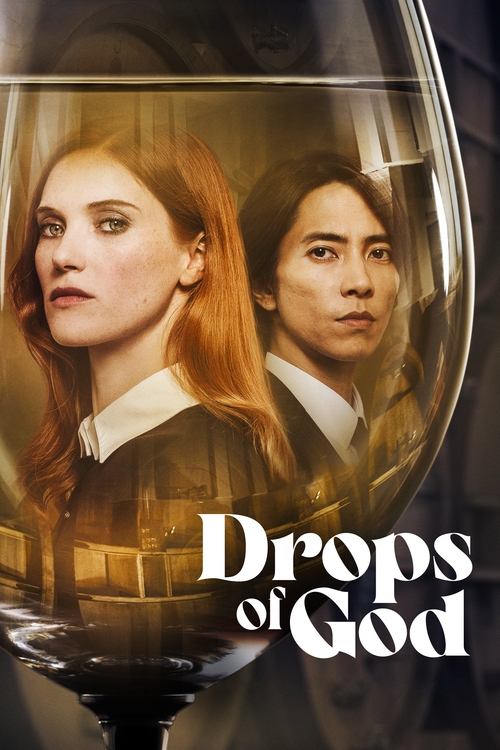
Ask Your Own Question
What is the plot?
In the opening scene of "Open Mind," we are introduced to the protagonist, Sarah, a brilliant neuroscientist who is grappling with the recent loss of her mother. The story begins in her cluttered lab, where she is conducting experiments on memory retrieval. Sarah is deeply motivated by her desire to understand the human mind and to find a way to reconnect with her mother's memories, which she believes are locked away in her own mind. The emotional weight of her loss is palpable as she talks to her mother's photograph, expressing her longing for closure.
As Sarah continues her research, she encounters a breakthrough when she discovers a method to access suppressed memories. This discovery is met with skepticism from her colleagues, particularly Dr. Miller, who warns her about the ethical implications of her work. Despite the pushback, Sarah is determined to proceed, driven by her personal grief and the hope of reconnecting with her mother. She begins to conduct experiments on herself, documenting her experiences in a journal.
In a pivotal scene, Sarah successfully accesses a repressed memory of a childhood event involving her mother. The memory is vivid and emotional, filled with warmth and love, but it quickly turns dark as she recalls a traumatic incident that she had buried deep within her psyche. This revelation shakes her to her core, and she begins to question the morality of her research. The emotional turmoil leads her to confront her own past, and she starts to see the connections between her memories and her current emotional state.
As Sarah delves deeper into her memories, she begins to experience side effects from her experiments. She suffers from vivid hallucinations and flashbacks that blur the lines between reality and memory. In one intense sequence, she finds herself in a confrontation with a figure from her past, a representation of her unresolved guilt. This confrontation forces her to confront her feelings of inadequacy and loss, pushing her further into a spiral of obsession with her research.
Meanwhile, Dr. Miller becomes increasingly concerned about Sarah's well-being. He attempts to intervene, urging her to take a break and seek therapy. However, Sarah dismisses his concerns, believing that her work is the key to healing. This decision creates tension between them, as Dr. Miller feels responsible for her safety and is frustrated by her refusal to listen.
In a climactic moment, Sarah decides to conduct a public demonstration of her memory retrieval technique at a scientific conference. She invites volunteers to participate, hoping to showcase the potential of her research. However, during the demonstration, things go awry when one of the volunteers experiences a severe psychological breakdown, leading to chaos in the auditorium. Sarah is horrified as she realizes the potential dangers of her work, and the incident serves as a wake-up call for her.
Following the conference, Sarah is faced with backlash from the scientific community and is forced to confront the ethical implications of her research. She has a heart-to-heart conversation with Dr. Miller, who expresses his concern for her mental health and the consequences of her actions. This moment of vulnerability leads Sarah to reconsider her approach, and she begins to seek help for her own psychological struggles.
In the final act, Sarah embarks on a journey of self-discovery, using her research to help others rather than solely focusing on her own grief. She starts a support group for individuals dealing with trauma, using her knowledge to guide them through their memories in a safe and ethical manner. The series concludes with Sarah finding a sense of peace as she learns to let go of her past while still honoring her mother's memory. The emotional resolution is depicted through a series of poignant flashbacks, showing Sarah's growth and acceptance of her experiences.
What is the ending?
In the ending of "Open Mind," the main characters confront their inner demons and the truths they have been avoiding. The climax unfolds in a tense confrontation that leads to a resolution of their conflicts, ultimately allowing them to find a sense of closure and understanding. Each character's journey culminates in a moment of self-acceptance, and they part ways with a renewed sense of purpose.
As the final episode unfolds, the scene opens in a dimly lit room where the main characters, Alex, Mia, and Jordan, gather for one last discussion. The atmosphere is thick with tension, as unresolved issues hang heavily in the air. Alex, visibly anxious, paces back and forth, his mind racing with thoughts of the past and the mistakes he has made. Mia sits quietly, her eyes reflecting a mix of sadness and determination, while Jordan leans against the wall, arms crossed, a defensive posture that belies his inner turmoil.
The conversation begins with Alex expressing his regrets about how he has treated both Mia and Jordan. He admits to feeling lost and overwhelmed, revealing the deep-seated fears that have driven his actions. Mia, in turn, opens up about her struggles with self-worth and the impact of Alex's behavior on her mental health. Her voice trembles as she recounts moments of doubt and pain, but there is also a newfound strength in her words. Jordan, initially silent, finally speaks up, sharing his own vulnerabilities and the pressure he feels to be the strong one in their group.
As the dialogue progresses, the characters begin to confront the truths they have been avoiding. They share their fears, their hopes, and the ways they have hurt one another. The emotional weight of their confessions creates a palpable shift in the room. Tears are shed, and moments of silence punctuate their revelations, allowing each character to process the gravity of their shared experiences.
In a pivotal moment, Alex takes a deep breath and apologizes sincerely to both Mia and Jordan. He acknowledges the pain he has caused and expresses a desire to change. Mia, moved by his honesty, forgives him, but also emphasizes the importance of accountability. Jordan, witnessing this exchange, feels a sense of relief wash over him, as he realizes that vulnerability can lead to healing.
The scene transitions to a montage of the characters taking steps toward their individual journeys. Alex is seen attending therapy sessions, working on his issues with a newfound commitment. Mia is shown pursuing her passion for art, channeling her emotions into her work, while Jordan begins to open up to his friends about his struggles, breaking down the walls he had built around himself.
The final scene takes place in a park, where the three friends meet one last time. The sun is setting, casting a warm glow over the scene. They share a heartfelt goodbye, each expressing gratitude for the role the others played in their growth. As they part ways, there is a sense of hope and possibility in the air, suggesting that while their paths may diverge, the lessons they learned together will stay with them.
In the closing moments, the camera lingers on each character as they walk away, their faces reflecting a mix of determination and peace. The screen fades to black, leaving the audience with a sense of closure and the understanding that personal growth is a continuous journey, one that often requires facing uncomfortable truths and embracing vulnerability.
Is there a post-credit scene?
In the 2022 series "Open Mind," there is indeed a post-credit scene that adds an intriguing layer to the narrative.
As the credits roll, the screen fades to black before transitioning to a dimly lit room filled with books and scattered papers. A single desk lamp casts a warm glow over a figure hunched over a notebook. The camera slowly zooms in, revealing the character of Dr. Elena Hart, a central figure in the series known for her deep psychological insights and complex emotional struggles.
Dr. Hart is scribbling furiously, her brow furrowed in concentration. The scene captures her internal conflict; she is torn between her professional responsibilities and her personal demons. The tension in her posture suggests a sense of urgency, as if she is racing against time to uncover a truth that has eluded her throughout the series.
Suddenly, she pauses, her pen hovering above the page. A look of realization washes over her face, and she leans back in her chair, staring at the wall as if seeing something beyond it. The camera shifts to a close-up of her eyes, which reflect a mix of determination and fear. It becomes clear that she has stumbled upon a significant breakthrough related to the overarching mystery of the show.
The scene ends with a soft click as she closes the notebook, a determined look settling on her face. The screen fades to black again, leaving viewers with a sense of anticipation and curiosity about what this revelation might mean for her character and the unfolding story. This post-credit moment effectively teases future developments, inviting the audience to ponder the implications of her discovery.
What motivates the main character, Alex, to pursue the truth about his family's past?
Alex is driven by a deep-seated need for closure and understanding. Throughout the series, he grapples with feelings of abandonment and confusion stemming from his childhood. As he uncovers layers of secrets about his family's history, his emotional state shifts from anger to a desperate quest for identity, pushing him to confront painful memories and ultimately seek reconciliation.
How does the relationship between Alex and his mentor, Dr. Sarah, evolve throughout the series?
Initially, Alex views Dr. Sarah as a guiding figure, someone who provides him with the tools to navigate his investigation. However, as the series progresses, their relationship becomes more complex. Alex begins to challenge Dr. Sarah's methods and motivations, leading to tension and conflict. This evolution reflects Alex's growing independence and desire to forge his own path, culminating in a pivotal moment where he must choose between her guidance and his own instincts.
What role does the mysterious artifact play in the unfolding of the plot?
The mysterious artifact serves as a catalyst for the entire narrative. It is discovered early in the series and is linked to Alex's family history. As Alex investigates its origins, he uncovers a web of deceit and hidden truths that connect various characters. The artifact symbolizes the weight of the past and the secrets that bind the characters together, driving the plot forward and leading to critical revelations about loyalty and betrayal.
How does the antagonist, Marcus, influence the events of the story?
Marcus is a shadowy figure whose influence looms over the narrative. He represents the darker aspects of the quest for truth, often manipulating events from behind the scenes. His motivations are rooted in a desire for power and control, which creates obstacles for Alex. As the series progresses, Marcus's actions escalate, leading to confrontations that test Alex's resolve and moral compass, ultimately forcing him to confront not just Marcus, but his own fears.
What is the significance of the recurring dream sequences experienced by Alex?
The recurring dream sequences serve as a window into Alex's subconscious, revealing his inner turmoil and unresolved issues. Each dream is rich with symbolism, reflecting his fears, desires, and the weight of his family's secrets. As the series unfolds, these dreams become increasingly vivid and prophetic, guiding Alex toward critical realizations about his past and foreshadowing key plot developments. They highlight his emotional struggle and the psychological impact of his quest for truth.
























